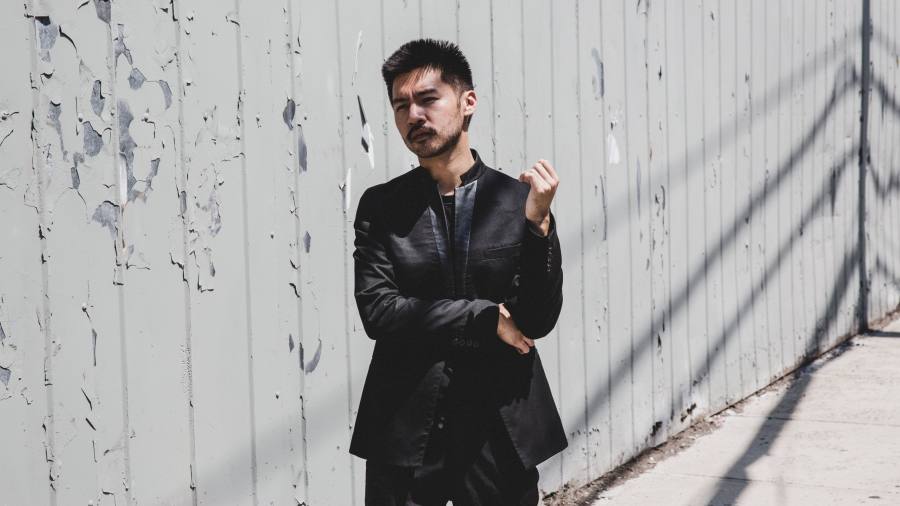
Classical music concerts are laid out on paper or in programme booklets. The music is usually familiar, if not famous, the order is pre-determined — it’s right there in print — and there’s very little room for surprises. That predictability often seems to be the point. It’s safe and satisfying.
But when Conrad Tao is on the bill, as pianist or even composer, something surprising is in store. The American’s playing has an exciting sense of spontaneity, but that’s the least of it. For an encore, maybe he’ll play something everyone knows, like a Rachmaninoff Prelude or a jazz standard, or even an indie pop song. Lately, he’s likely to do something that once seemed inappropriate: improvise his way through a Mozart piano concerto.
“It’s an invitation to illustrate what I think is eternal about the music,” says Tao, 28, over Zoom of taking up the historic practice of improvising. “I think I’m a little bit old-fashioned, a little bit formalist in the sense that there are certain principles [in the way music functions].” He talks about ways to tap into “why the piece feels the way it does . . . to show that while leaving my trace on it.”
Tao, the child of Chinese-born parents, grew up in Urbana, Illinois, and was a traditional prodigy: at the age of eight he made his concerto debut with the Utah Chamber Music Festival Orchestra, performing Mozart’s Piano Concerto No. 12 in A major. He also performed professionally on violin through his teens, and has received awards as a pianist, recorded for major labels, and been commissioned as a composer — including by the New York Philharmonic — since he was 15. Composing, he says, “always seemed like a completely organic aspect of being a musician”.
That is the old tradition of the great composer-pianists who were also supreme improvisers, like Mozart and Beethoven, now slowly returning. This practice was vital and widespread throughout the 19th century but was sub rosa for a stretch of the 20th, still simmering but enveloped by the prominence of recordings and a new emphasis on strict adherence to the written score.
For Tao, the “trace” he leaves on music through improvisation combines intellect, fiery passion and disarming personal feelings. “I really love improvisation, period,” Tao says. “I have improvised in some capacity all my life, and it’s been a part of my composition process.”
At his Carnegie Hall debut recital in 2019, Tao’s main programme was Bach’s Toccata in F-sharp and Schumann’s Kriesleriana, with several modern works. He was expressive, intense, impetuous, exciting, and even a touch exhausting: things familiar from his recordings and concerts. Once again, though, the surprise was in the encore: “True Love Will Find You In The End” by outsider pop musician Daniel Johnston. Tao played the simple theme and chords, improvised with them, and then sang the lyrics along with his playing. “I’d never done it before, and I haven’t really done it a lot since, although I think it does fit into my larger approach with encores in general.”
“Johnston had recently passed away,” he explains, “it was simply in my ears. And I think it just mapped on to how I was feeling. I feel encores are best when they’re kind of a reflection of how I’m feeling in the moment. Maybe it’s just I hear something, and it moves me so deeply that I’m like, we’ve got to do this. I think I have that muscle.”
This past July in Lincoln Center, that muscle brought out Billy Strayhorn’s “Lush Life” as an encore following Tao’s performance of Mozart’s Piano Concerto No. 17 and Gershwin’s Rhapsody in Blue with the Mostly Mozart Festival Orchestra and conductor Louis Langrée. He improvised on that song as well, and in the main part of the concert improvised the cadenzas in the Mozart Piano Concerto. In the final cadenza-like passage in Rhapsody, the music carried him along until he broke free of it and bashed out clusters on the keyboard with his forearms.
Some of this development was “pandemic specific”. In those first lockdown months, he says, “I wasn’t all that motivated to compose, improvising kept me present in a way that was valuable, and I ended up spending a lot of time developing my toolkit at the piano.” He describes how doing live streaming performances from his home “was this nice middle ground where I could get used to the kind of immediacy and pressure of improvising for people without the actual pressure of an in-person audience”.
Beyond improvisation, another old tradition that can surprise in the classical world is using dance as part of a performance. Tao has been performing with dancer Caleb Teicher since 2013, and in 2018 the pair began developing new performances. “It turns out to be one the most joyous, lightest, most fun things that either of us do,” Tao says. “We show up and play together. Caleb is a percussive dancer, there’s a shared musical background, we are both making music.”
Tao clearly values this as something beyond the classical world, another reflection of the prism. “So many of my peers are out there doing serious and exciting work in all sorts of fields . . . there’s great value working with people who have a different vocabulary, it’s enormously powerful. It forces me to think about what a performance, or an idea, really is.” And brings some surprising answers.
Conrad Tao performs with the Paul Taylor Dance Company at the David H Koch Theater, New York, on November 6 and 8 and tours with Junction Trio from November 28-December 11, conradtao.com
Find out about our latest stories first — follow @ftweekend on Twitter